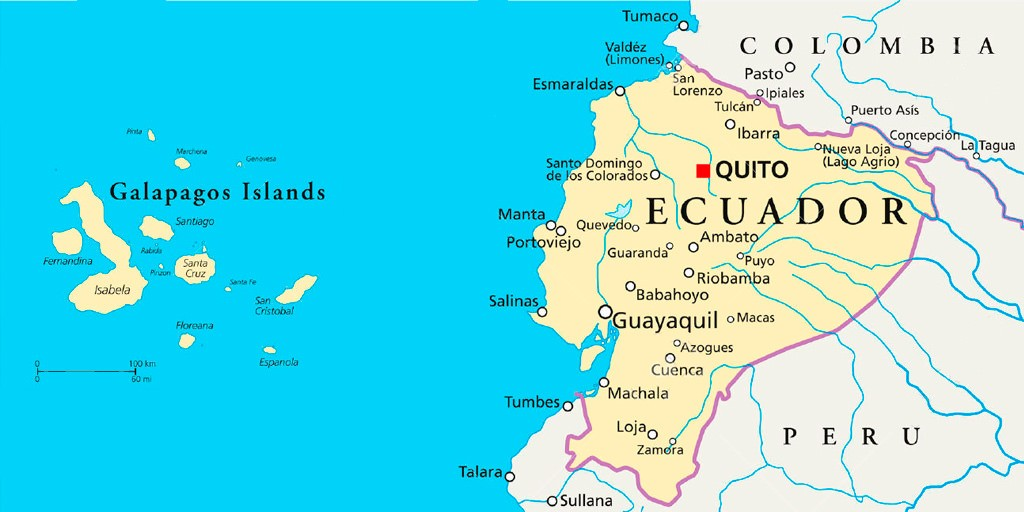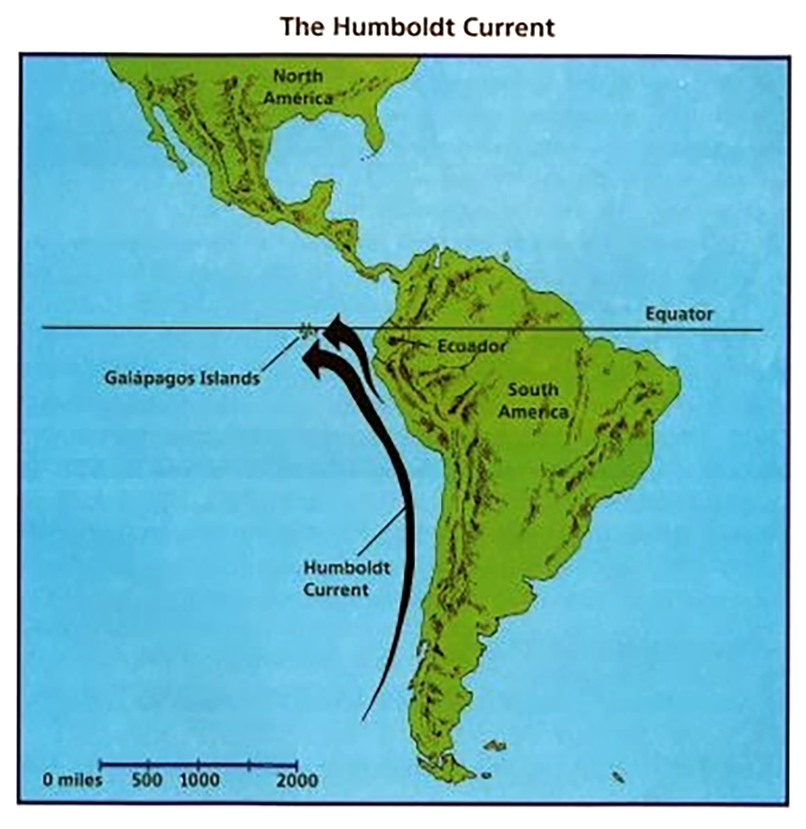International Relations
China’s Presence Near Ecuador Waters
- 03 Aug 2020
- 5 min read
Why in News
Recently, Ecuador has expressed an official discomfort over the sighting of a flotilla of 260 mostly Chinese fishing vessels near the Galapagos archipelago (a part of Ecuador).
- The flotilla also consisted of some Liberia and Panama-flagged vessels which was detected in an international water corridor situated between two areas of Ecuadorian jurisdiction– 200 miles away from both the Galapagos Islands and mainland Ecuador.
Galapagos Archipelago
- Location:

- The Galapagos Islands, spread over almost 60,000 sq km, are a part of Ecuador.
- These are located in the Pacific Ocean around 1,000 km away from the South American continent.
- Protection Status:
- Ecuador made a part of the Galapagos a wildlife sanctuary in 1935, and the sanctuary became the Galapagos National Park in 1959.
- In 1978, the islands became UNESCO’s first World Heritage Site.
- Wildlife:
- It contains aquatic species such as manta rays and sharks which have been endangered by commercial fishing.
- It also hosts a wide array of aquatic wildlife, including marine iguanas, fur seals, and waved albatrosses.
- Also, the giant tortoises found here – 'Galápagos' in old Spanish – give the islands its name.
- Significance:
- The British naturalist Charles Darwin made key observations in 1835 that shaped his theory of evolution.
- Darwin described the islands as a “world in itself”.
Key Points
- Past Occurrences:
- Ecuador has stated that the situation is repeated every year and such vessels reach the outer limit of the archipelago, outside the country’s exclusive zone.
- In 2019, 245 Chinese fishing vessels were sighted in the area where Ecuador’s writ does not extend.
- In 2017, a Chinese ship had entered Ecuador’s waters and its authorities seized the ship.
- That time Ecuador had discovered 300 tonnes of wildlife on board, mostly the critically endangered scalloped hammerhead sharks.
- It has been observed that the two-thirds of hammerhead shark fins found in Hong Kong markets come from the Galapagos area.
- Reasons:

- Chinese ships are frequent in Ecuador's waters during august month of the year as the cold Humboldt Current brings in nutrients that lead to a high congregation of marine species.
- The Humboldt Current, also called the Peru Current, is a cold, low-salinity ocean current that flows north along the western coast of South America.
- The Humboldt Current is a highly productive ecosystem. It is the most productive eastern boundary current system. It accounts for roughly 18-20% of the total worldwide marine fish catch.
- Chinese ships are frequent in Ecuador's waters during august month of the year as the cold Humboldt Current brings in nutrients that lead to a high congregation of marine species.
- Conflicts with Other Countries:
- Chinese vessels have also run into trouble with other countries in the region.
- In 2016, Argentina’s coast guard chased and sank a vessel that it claimed had been illegally fishing in the South Atlantic Ocean.
- Diplomatic Consequences:
- The matter has been escalated to a diplomatic level and Ecuador has officially expressed its “discomfort” to China.
- Ecuador has also stated that it will discuss the threat with Peru, Chile, Colombia, and Panama – coastal countries of the region that have also been affected in the past.
- The USA, which is already opposing China on multiple fronts, expressed its support for Ecuador. The USA has also expressed that it is against any aggression directed towards economic and environmental sovereignty.
- China’s Stand:
- China maintains that it is a “responsible fishing nation” with a “zero tolerance” policy toward illegal fishing.
- It also stated that China respects Ecuador's measures to protect the environment and preserve marine resources.
Way Forward
- All the nations including China need to be extra cautionary regarding environmental issues considering the looming threat of climate change.
- The warming of oceans due to climate change is expected to further increase fishing pressure around these islands.
- Thus, effective global collaboration is the only way forward to resolve such issues.




